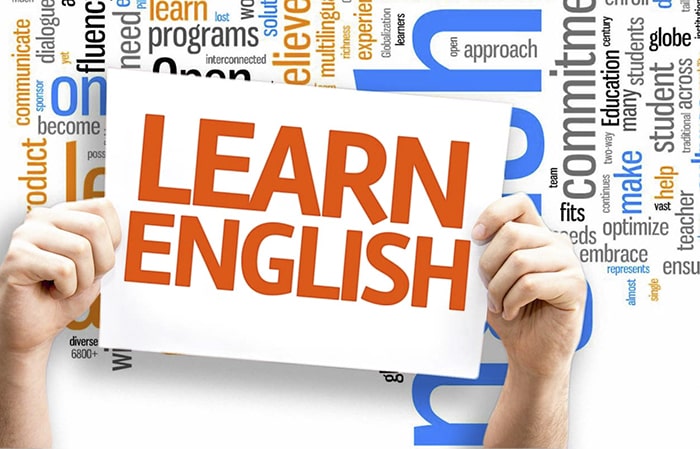Để giúp bạn tự tin hơn trong việc nắm bắt những kiến thức quan trọng về nội dung các thì ngữ pháp tiếng Anh, SEDU English đã tổng hợp và mang đến cho bạn một nguồn tài liệu vô cùng hữu ích: “Tổng hợp bài tập về các thì trong tiếng Anh có đáp án”. Bài viết này không chỉ giúp bạn rèn luyện kỹ năng ngữ pháp mà còn cung cấp lời giải chi tiết, giúp bạn tự kiểm tra và nâng cao trình độ của mình.
Tổng quan kiến thức cơ bản về 12 thì trong tiếng Anh
Trong hệ thống ngôn ngữ tiếng Anh, có tổng cộng 12 thì chính, mỗi thì đều mang đến một cách biểu đạt thời gian và tình huống khác nhau. Bạn có thể xem xét cách mỗi thì được sử dụng để diễn đạt sự kiện, hành động, hay tình trạng tại các thời điểm cụ thể. Dưới đây là tổng hợp kiến thức về 12 thì trong tiếng Anh:
| Thì | Cấu trúc |
| Thì hiện tại đơn (Present Simple) | Với động từ thường:[+] S + V (s,es) + O[-] S + don’t/doesn’t + V + O [?] Do/Does + S + V + O…? |
| Với động từ tobe:[+] S + is/are/am + Adj/Adv/N[-] S + isn’t/aren’t/amn’t + Adj/Adv/N
[?] Is/are/am + S + Adj/Adv/N?
Wh-question + Is/are/am + S….? |
|
| Thì hiện tại tiếp diễn(present continuous tense) | [+] S + am/ is/ are + V-ing[-] S + am/ is/ are + not + V-ing[?] Am/ Is/ Are + S + V-ing ? [?] Wh – question + Is/are/am + S + V-ing? |
| Thì hiện tại hoàn thành(Present Perfect tense) | [+] S + have/has + VpII + O[-] S + haven’t/ hasn’t + VpII + O[?] Have/has + S + VpII+ O
Yes, S + have/has, No + haven’t/hasn’t [?] Wh-question + have/has + S + VpII |
| Thì hiện tại hoàn thành tiếp diễn(Present perfect continuous tense) | [+] S + has/have + been V-ing + O.[-] S + have not/has not (haven’t/hasn’t) + been + V-ing + O[?] Have/has + S + been + Ving + O?
Wh question + have/has + S + been + Ving + O? |
| Quá khứ đơn (Past simple) | Động từ thường:[+] S + V-ed/P1 + O[-] S + didn’t + V + O
[?] Wh-question + did + S + V?
Did + S + V…? Yes/No, S + did/didn’t |
| Động từ tobe:[+] S + was/were + Adj/N[-] S + wasn’t/ weren’t + Adj/N
[?] Wh question + was/were + S?
Was/were + S + Adj/N? |
|
| Quá khứ tiếp diễn (Past Continuous tense) | [+] S + was/were + V-ing +O[-] S + wasn’t/weren’t + V-ing + O[?] Wh – question + was/were + S + V-ing? [?] Was/Were + S + Ving…? -> Yes/No, S + was/were (not) |
| Quá khứ hoàn thành(Past perfect tense) | [+] S + had + V3[-] S + hadn’t [had not] + V3[?] Had + S + V-P2? -> Yes/No, S + had/hadn’t |
| Quá khứ hoàn thành tiếp diễn(Past perfect continuous tense) | [+] S + had + been + V-ing[-] S + hadn’t + been + V-ing[?] Had + S + been + V-ing?
-> Yes/No, S + had/hadn’t |
| Tương lai đơn(Simple future tense) | [+] S + will + V(inf – nguyên thể)[-] S + will not (won’t) + V(inf – nguyên thể)[?] Will + S + V(inf – nguyên thể)?
> Yes/No, S + will/ won’t Wh-word + will + S + V (inf) ? |
| Tương lai tiếp diễn(Future Continuous tense) | [+] S + will + be + V-ing[-] S + won’t + be + V-ing[?] Will + S + be + V-ing?
-> Yes/No, S + will/ won’t |
| Tương lai hoàn thành (Future Perfect) | [+] S + will + have + V3[-] S + won’t + have + V3[?] Will + S + have + V3? -> Yes/No, S + will/ won’t? |
| Tương lai hoàn thành tiếp diễn (Future Perfect Continuous) | [+] S + will have been + Ving[-] S + won’t have been + Ving[?] Will + S + have been + Ving? -> Yes/No, S + will/ won’t? |
| Tương lai gần (Near Future) | [+] S + am/is/are + going to + V – inf.[+] S + am/is/are + not + going to + V – inf.[?] Am/Is/Are + S + going to + V – inf? |
Các bài tập về các thì trong tiếng Anh
Phần I. Bài tập trắc nghiệm (30 câu hỏi)
- I usually ___ to the gym in the morning.
- go
- goes
- going
- went

- Last night, while I ___ TV, the power suddenly went out.
- watch
- watched
- watching
- watches
- By the time I ___ home, she ___ dinner.
- get / already cooked
- got / already cooking
- got / had already cooked
- get / already cooking
- She ___ in the garden when it started raining.
- works
- working
- was working
- worked
- We ___ each other for years before we got married.
- know
- knowing
- have known
- knows
- While I ___ my keys, my phone ___ in the car.
- am looking for / was ringing
- looking for / ringing
- was looking for / rang
- looked for / ring
- They ___ a new house last year.
- buy
- buys
- buying
- bought
- By the time we ___ the cinema, the movie ___.
- reach / has already started
- reached / already started
- reach / already starts
- reached / had already started
- She ___ her homework when her friend ___ her.
- doing / called
- was doing / called
- was doing / calls
- does / calling
- I ___ the book you recommended and I really enjoyed it.
- read
- reading
- reads
- have read
- The sun ___ in the east.
- rise
- rises
- rising
- raised
- My grandparents ___ married for 50 years.
- is
- are
- was
- were
- Last summer, we ___ to the beach every weekend.
- go
- goes
- going
- went
- She ___ English since she was a child.
- learns
- learning
- learn
- has learned
- While I ___ my sister at the mall, I ___ a famous actor.
- was seeing / saw
- see / see
- saw / was seeing
- see / saw
- They ___ at the party when the incident ___.
- dance / happens
- were dancing / happened
- danced / was happening
- are dancing / happening
- I ___ to the store yesterday.
- go
- goes
- going
- went
- By the time I ___ my keys, I realized I ___ them at home.
- find / leave
- found / left
- finds / leaves
- finding / leaving
- He ___ to Paris twice.
- go
- goes
- going
- went
- She ___ for that company since she graduated.
- works
- working
- work
- has worked
- We ___ at the airport when they ___ us.
- were waiting / were calling
- was waiting / called
- waited / were calling
- wait / called
- He ___ the guitar for 10 years.
- play
- plays
- played
- playing
- The children ___ cartoons on TV when I ___ home.
- watch / get
- were watching / got
- watch / got
- watched / getting
- I ___ a lot of friends since I ___ to this city.
- made / moved
- make / move
- make / moved
- made / move
- The sun ___ every morning.
- rise
- rises
- rising
- raised
- They ___ dinner when I ___ them.
- were having / called
- had / call
- have / was calling
- have / called
- I ___ to the market yesterday.
- go
- goes
- going
- went
- By the time I ___ there, the meeting ___.
- reach / ends
- reached / was ending
- reach / ended
- reached / ends
- She ___ the piano for two hours.
- play
- plays
- played
- playing
- We ___ a new car last month.
- buy
- buys
- buying
- bought
Đáp án:
A, 2. B, 3. C, 4. C, 5. C, 6. C, 7. D, 8. B, 9. B, 10. D, 11. B, 12. B, 13. D, 14. D, 15. A, 16. B, 17. D, 18. B, 19. D, 20. D, 21. A, 22. C, 23. B, 24. A, 25. B, 26. A, 27. D, 28. B, 29. C, 30. D.
Phần II. Bài tập viết
- Last night, we / the movie / when / a thunderstorm / hit.
- We were watching the movie when a thunderstorm hit.
- A thunderstorm hit when we were watching the movie.
- When we were watching the movie, a thunderstorm hit.
- When a thunderstorm hit, we were watching the movie.
- She / to Paris / the first time / ever / last summer / went.
- She ever went to Paris the first time last summer.
- Last summer she went to Paris the first time ever.
- She went to Paris last summer the first time ever.
- She went the first time ever to Paris last summer.
- While I / my keys / looking for / realized / at home / I / them / left.
- While looking for my keys, I realized I left them at home.
- While my keys, looking for, I realized I left them at home.
- I left them at home while looking for my keys, I realized.
- I realized, while looking for my keys, I left them at home.
- At the party / the guests / the cake / when / arrived / already / had / been eaten.
- The guests had already arrived at the party when the cake had been eaten.
- The cake had already been eaten when the guests arrived at the party.
- When the guests arrived at the party, the cake had already been eaten.
- The cake had already been eaten, the guests arrived at the party.
- She / on the phone / her friend / talking / the moment / to / walked in.
- She was talking to her friend on the phone the moment walked in.
- She was talking on the phone to her friend the moment walked in.
- The moment she walked in, she was talking to her friend on the phone.
- She was talking on the phone the moment to her friend walked in.
- When I / at the bus stop / arrived / had already / the bus / left.
- When I arrived at the bus stop, the bus had already left.
- The bus had already left when I arrived at the bus stop.
- When the bus had already left, I arrived at the bus stop.
- The bus left when I arrived at the bus stop already.
- They / dinner / having / were / I / when / called.
- When I called, they were having dinner.
- They were having dinner when I called.
- When having dinner, I called them.
- I called when they were having dinner.
- Yesterday / the store / I / went / to.
- I to the store went yesterday.
- I yesterday went to the store.
- Yesterday I went to the store.
- I yesterday the store went to.
- My grandparents / for 50 years / have / been / married.
- My grandparents have married for 50 years.
- My grandparents for 50 years have been married.
- For 50 years my grandparents have been married.
- My grandparents for 50 years married have been.
- The children / in the garden / when / playing / I / arrived.
- The children were playing in the garden when I arrived.
- When playing, I arrived the children in the garden.
- Playing in the garden, I arrived when the children.
- I arrived when the children playing in the garden.
- While I / breakfast / the news / on TV / was / watching.
- While watching TV, I was having breakfast the news on.
- The news on TV I was having breakfast while watching.
- While having breakfast, I was watching the news on TV.
- I was watching TV while having breakfast the news on.
- She / the piano / for two hours / has / playing.
- She has playing the piano for two hours.
- She playing the piano has for two hours.
- Playing the piano for two hours, she has.
- She has been playing the piano for two hours.
- We / for years / each other / before / got married.
- Each other we got married for years before.
- We got married for years before each other.
- Before we got married, we each other for years.
- Each other for years, we got married.
- The sun / in the east / every morning / rises.
- Every morning rises the sun in the east.
- In the east, the sun every morning rises.
- The sun rises every morning in the east.
- Rises every morning in the east, the sun.
- I / the book / recommended / really enjoyed / you / read.
- I really enjoyed the book you recommended read.
- I read the book you recommended really enjoyed.
- You recommended the book really enjoyed I read.
- I read really enjoyed the book you recommended.
- They / the car / bought / last month / new.
- Last month they bought the new car.
- They last month bought the new car.
- The new car last month they bought.
- Bought the new car last month they.
- By the time we / the cinema / the movie / the time / had already / started.
- By the time we reached the cinema, the movie started already.
- By the time we reached the cinema, the movie had already started.
- The movie had already started by the time we reached the cinema.
- The cinema had already started by the time we reached the movie.
- He / to the beach / every weekend / went / last summer.
- He went to the beach every weekend last summer.
- Every weekend last summer he went to the beach.
- Went to the beach he every weekend last summer.
- He last summer went every weekend to the beach.
- While I / in the garden / raining / it / started / was / working.
- While it started raining, I was working in the garden.
- It started raining while I was working in the garden.
- While working in the garden, it started raining I was.
- It was working in the garden while raining I started.
- We / at the airport / calling / the time / arrived / they / were / waiting.
- We were calling at the airport the time they arrived they were waiting.
- They were waiting at the airport when we arrived we were calling.
- At the airport, they were waiting when we arrived we were calling.
- When we arrived at the airport, they were waiting we were calling.
Đáp án:
A, 2. B, 3. A, 4. C, 5. C, 6. A, 7. B, 8. C, 9. C, 10. A, 11. C, 12. D, 13. C, 14. C, 15. D, 16. A, 17. C, 18. A, 19. B, 20. C.
Trong cuộc hành trình rèn luyện kỹ năng tiếng Anh, “Tổng hợp bài tập về các thì trong tiếng Anh có đáp án” không chỉ là nguồn tài liệu hữu ích mà còn là người bạn đồng hành đắc lực. SEDU English hy vọng rằng việc thực hành qua các bài tập này sẽ giúp bạn cảm thấy tự tin hơn khi sử dụng các thì khác nhau, từ những cấp độ cơ bản đến những khía cạnh phức tạp hơn của ngữ pháp tiếng Anh.






